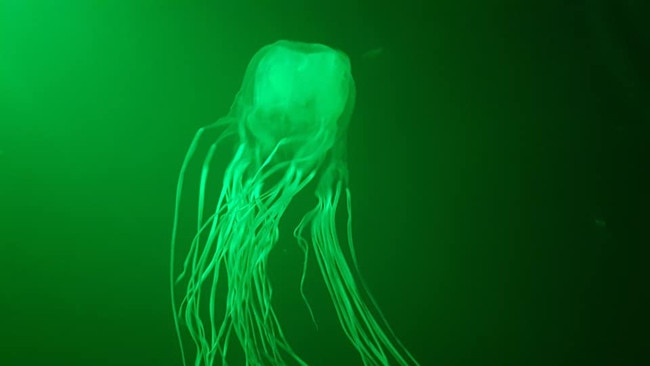Professor of medicine warns Territorians of increased risk of venomous box jellyfish stings
The stinger season is officially upon us once again and with it comes venomous box jellyfish who are more likely to be in NT waters until the end of May, 2022.
News
Don't miss out on the headlines from News. Followed categories will be added to My News.
THE stinger season is officially upon us once again and with it comes venomous box jellyfish who are more likely to be in NT waters until the end of May, 2022.
Box jellyfish stings cause excruciating pain and can be fatal.
Children are particularly at risk to the stings given their small body size and greater exposure in shallow water.
Royal Darwin Hospital professor of medicine Bart Currie said Territorians and visitors must be vigilant around coastal waters in the coming months.
“It’s important to be aware even at the water’s edge and in tidal creeks, as these box jellyfish prefer calm conditions,” Professor Currie said.
“The box jellyfish can be almost invisible in the water.
“It has 40 or more tentacles – each of which are covered in millions of stinging cells– so the best advice is to stay out of the sea.”
“People launching boats or other water craft should take extra care. Most of the severe and fatal stings in the NT have occurred as soon as a person entered the water, or soon afterwards in the shallows.”

Each year about 40 people present themselves to Top End health facilities with jellyfish stings.
There have been 14 recorded deaths from box jellyfish stings along the NT coast between 1975 and 2021, all of which were children.
“If stung, you will feel immediate pain and within minutes, white welts will appear where the tentacle touched the skin,” Professor Currie said.
“These welts change to red whip-like lines and subsequent skin death may lead to permanent scarring.
“Box jellyfish venom can quickly enter the blood stream and may affect the heart, causing irregular heartbeat and, in worst case scenarios, cardiac arrest and death.
“If you have to get in the water, ensure you cover up with a stinger suit or a shirt and long trousers.”
Immediate first aid for a jellyfish sting is important and the victim may need CPR.
If a jellyfish sting occurs remove the person from the water, call for help, assess the person and start CPR if needed.
It is advised to pour vinegar on the area of the sting to stop further discharge from the stinging cells, do not wash with fresh water.
If vinegar is not available, pick off any remaining tentacles.





